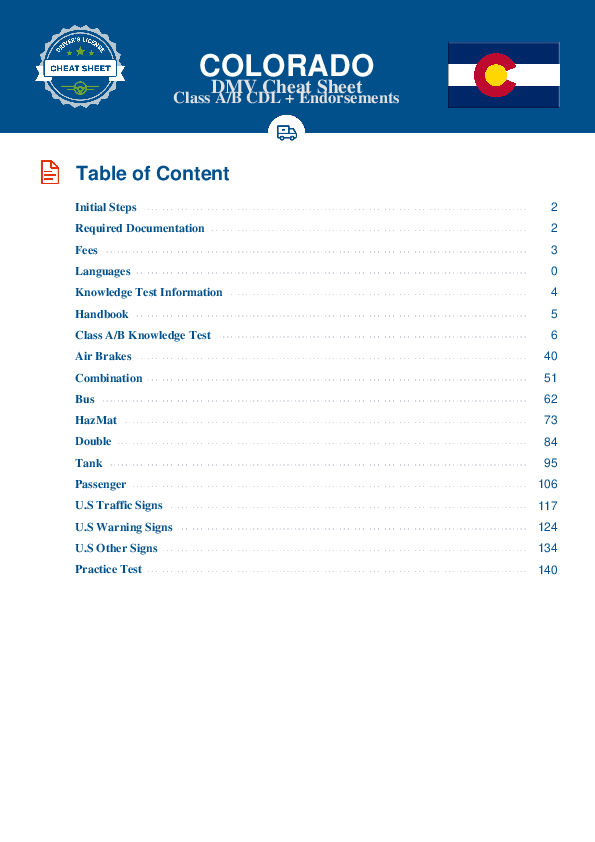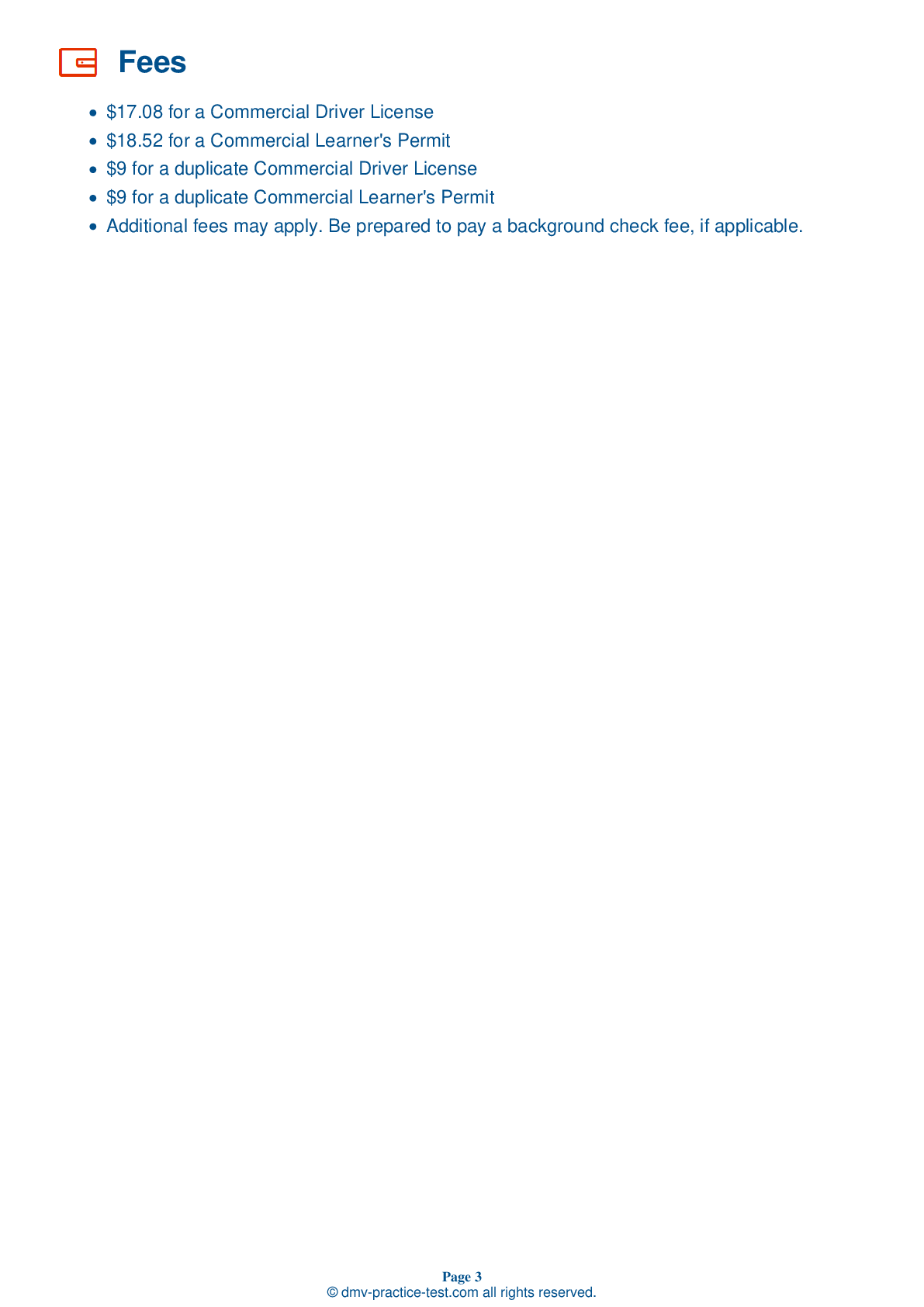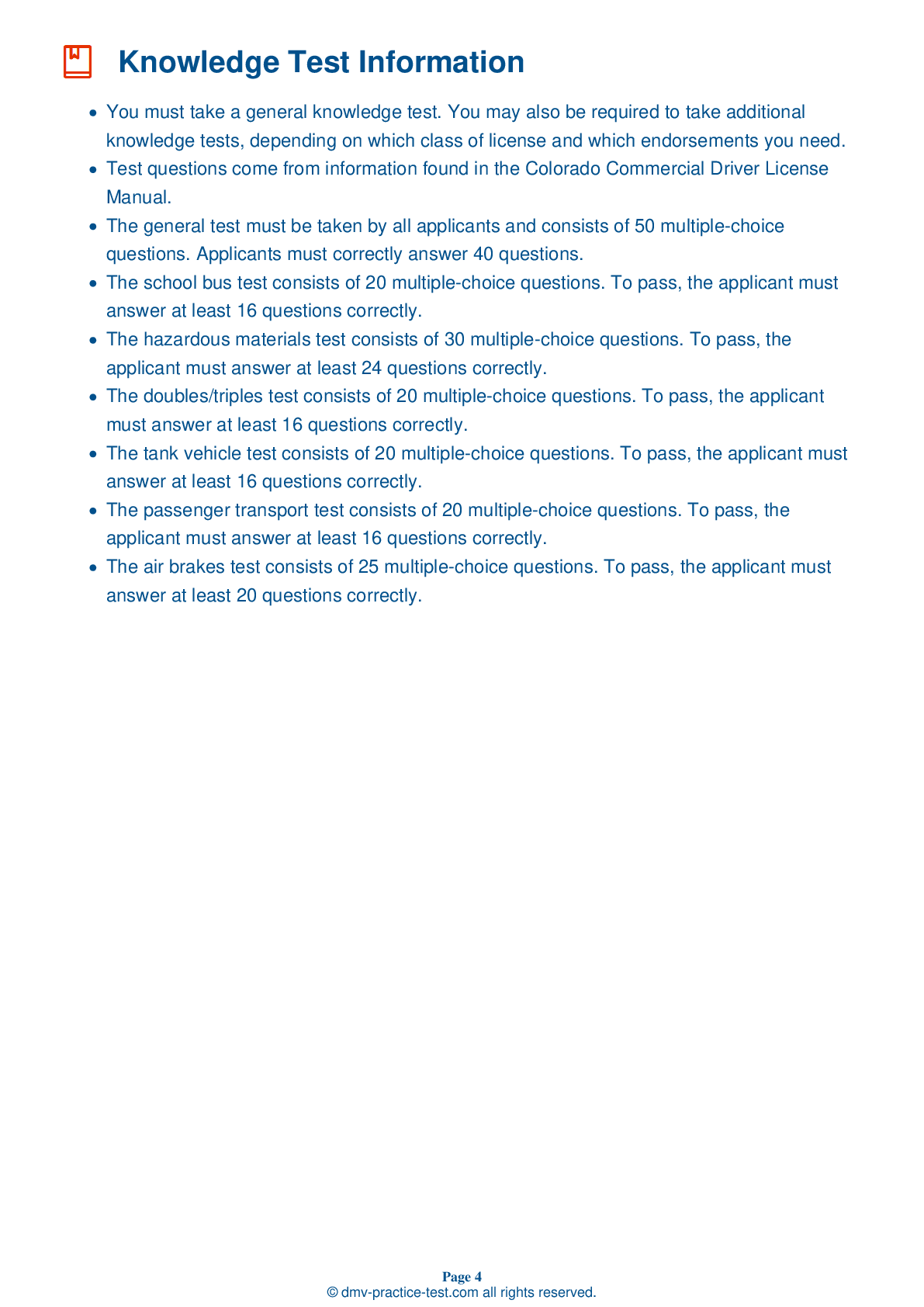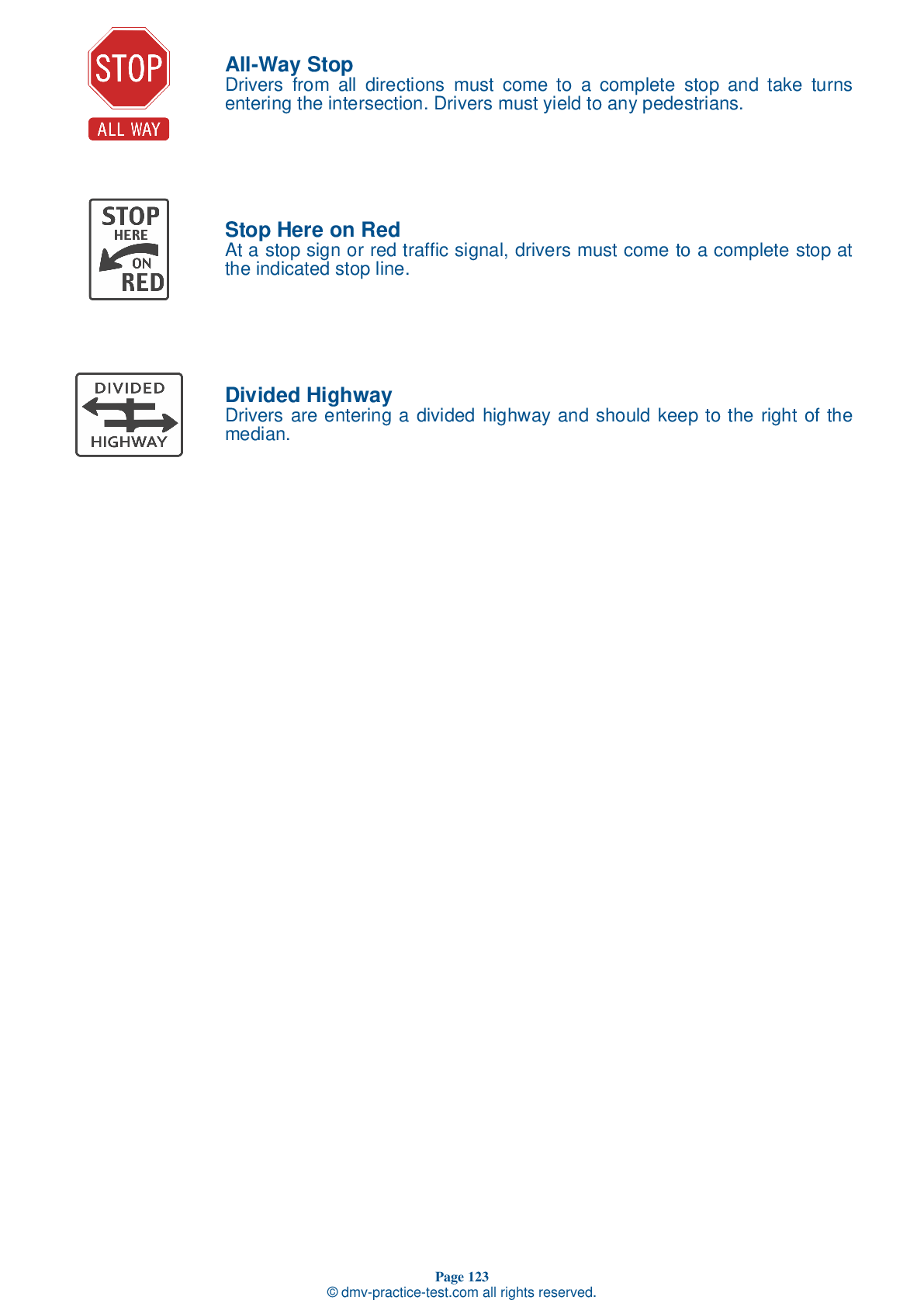Combination #1
Combination Vehicles Practice Test | Colorado 2026 #1 Page 2 of 3
Train for FREE online with our Colorado CDL combination vehicle test. The official exam test consists of several obligatory parts, with all of them checking your knowledge of different blocks of road rules. If you need to obtain a CO combination license in 2026, practice as much as possible. Free sample tests published on our website will help you check and improve your knowledge and boost your grades. Please bear in mind that DMV requirements for issuing a combination license may vary from state to state.
20
16
20
8 . To test the trailer service brakes, you should:
Move the vehicle forward slowly and apply the brakes with the hand control.
To test the trailer service brakes, you should first ensure that the braking system has a normal air pressure level, then release the parking brake. You should then move the vehicle forward slowly and apply the brakes with the hand control. If the trailer service brakes are working properly, you will feel the brakes activate.
9 . If unsure if a trailer is equipped with ABS, you can:
Remove a tire and look for the ABS sensor on the axle.
Trailers and converter dollies built on or after March 1, 1998 are required to have Anti-Lock Braking Systems (ABS). This will be indicated by the presence of a yellow malfunction lamp. You can determine if older trailers have ABS by checking under the trailers for ECU and wheel speed sensor wires coming from the back of the brakes.
10 . An Anti-Lock Braking System (ABS):
Assists with the operation of brake lights.
The function of an Anti-Lock Braking System (ABS) is to prevent a vehicle's wheels from locking up during hard braking.
11 . To prevent a rollover, a driver should:
Turn quickly.
Rollovers can happen when a combination vehicle is turned too quickly. To help prevent the risk of rollover, it is important to keep the vehicle's center of gravity low by loading cargo as close to the ground as possible.
12 . Compared to other commercial motor vehicles, combination vehicles need more space on the road because they are longer and they:
Swerve more often.
Combination vehicles need more space on the road than other commercial vehicles because they are longer and need more space to turn and stop. It is especially important to properly manage space when you are operating a combination vehicle.
13 . If you need to back your trailer but cannot back up in a straight path, you should:
Always turn to your right.
If you need to back your trailer but cannot back up in a straight path, you should back on a curved path toward the driver's side of the vehicle. This will permit you the best possible visibility while backing.
14 . Trailers with low underneath clearance may be difficult to drive:
At the posted speed limit.
Railroad-highway crossings may be difficult to cross when pulling a trailer with a low underneath clearance. In particular, both low-slung units and single-axle tractors pulling long trailers are especially challenging to drive over raised crossings.
2026 Colorado | Frequently Asked Questions
To secure a CDL Doubles/Triples endorsement in Colorado, you must already hold a valid CDL. You'll need to pass a knowledge test on handling large trucks with multiple trailers. After passing, the endorsement will be added to your CDL. Remember, this endorsement does not cover the operation of motorcycles or school buses.
To obtain a Colorado CDL Doubles/Triples license, you should first have a valid Colorado CDL. Then, you'll need to pass the Doubles and Triples endorsement test. This test covers topics like coupling and uncoupling, inspecting doubles and triples, and handling. After passing the test, the endorsement will be added to your CDL.
While Colorado doesn't specifically require specialized training for a CDL Doubles/Triples endorsement, it's highly recommended. Training can ensure you're prepared for the knowledge test and safe operation of these vehicles. Experience driving a single trailer truck may also be beneficial, but isn't required. The key requirement is passing the endorsement knowledge test.
Yes, to obtain a CDL Doubles/Triples endorsement in Colorado, you must pass a written knowledge test. This exam focuses on the safe operation and handling of large trucks with multiple trailers. It's important to study thoroughly, using resources like the Colorado CDL Handbook, to ensure success on this test.
For the CDL Doubles/Triples endorsement in Colorado, you're not required to perform a skills or road test. The endorsement solely requires passing a written knowledge test. This test covers topics like coupling and uncoupling, inspecting doubles and triples, and managing the vehicles on the road. Practical skills are important for safe driving but aren't formally tested for this endorsement.
No, it is not permissible to operate double or triple trailers in Colorado without a valid CDL Doubles/Triples endorsement. This endorsement is necessary to ensure that drivers have the specialized knowledge and skills required to safely operate such vehicles. Driving without the proper endorsement can result in legal penalties.
In Colorado, you can add the CDL Doubles/Triples endorsement to your existing commercial driver's license. You don't need to initiate a new application for a separate license. However, you must pass the written knowledge test specific to doubles/triples operation. After passing, the endorsement is added to your current CDL.
Yes, even with a CDL Doubles/Triples endorsement, Colorado drivers must adhere to specific rules. These include a maximum trailer length of 28.5 feet for each unit in a set of doubles, and the total weight of all units combined cannot exceed 80,000 lbs. Also, drivers must follow all federal and state transportation laws, including hours of service regulations.
In Colorado, the maximum legal weight for a vehicle, including double or triple trailers, is 80,000 pounds. The maximum length for a single trailer is 57 feet 4 inches. For double/triple trailers, the combined length should not exceed 100 feet. However, these restrictions may vary depending on road and bridge limits.
Yes, safety is paramount when operating double/triple trailers. Drivers must follow federal and state laws, including speed limits and hours of service regulations. They should also be well-versed in coupling and uncoupling procedures, inspecting the coupling system regularly. Additionally, they must understand the high rollover risk associated with these vehicles and ensure proper cargo distribution to prevent accidents.



